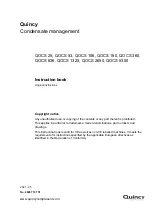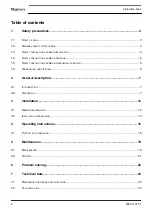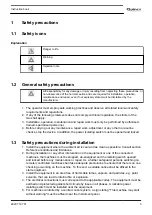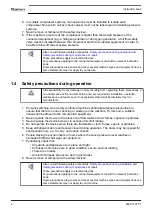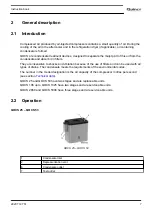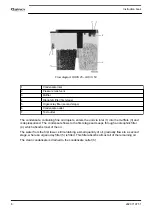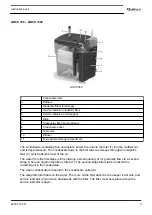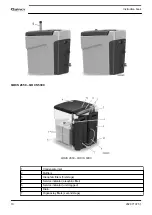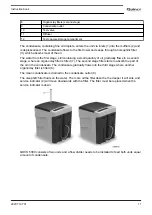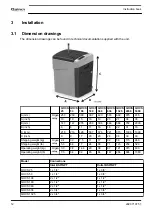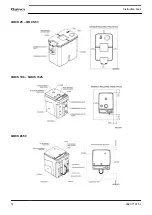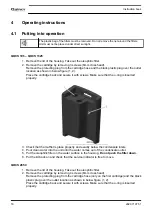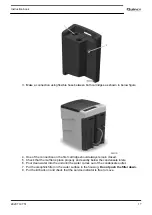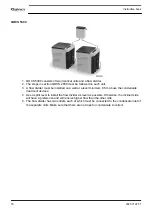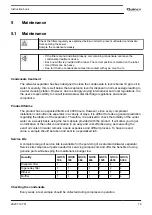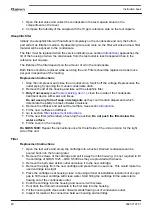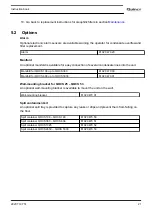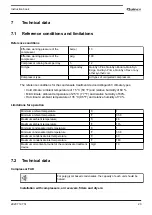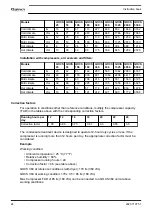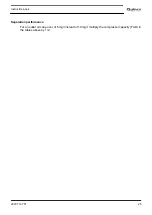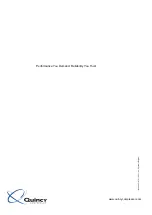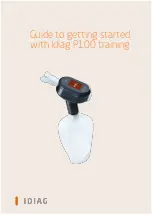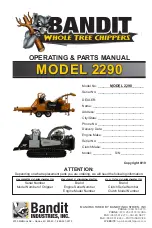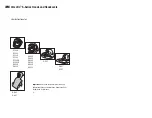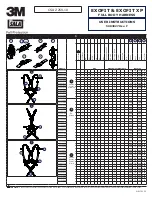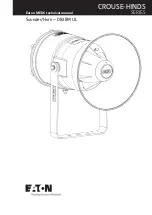
Model
Connections
Inlet BSP/NPT
Outlet BSP/NPT
QOCS 2650
2 x 3/4 "
1 x 3/4 "
QOCS 5300
2 x 3/4 "
2 x 3/4 "
3.2
Installation procedure
Always install the device as shown in the pictures, i.e. vertically.
The test port should always be plugged during normal working conditions. The plug can be
removed to collect condensate samples in small quantities.
It is advised that the drain tube from the compressor installation to the oil/water separator inclines
downwards over the entire tubing length. This will prevent local accumulations and stagnation of
condensate pockets in the tubing. Some types of drains depressurize the condensate by means
of a nozzle, removing the propulsion force of the pressure to inject the condensate in the
separator. For this reason, it is advised to position the separator lower than the drains that are
feeding it, whenever possible.
The drain tube that is mounted to the outlet of the oil/water separator must incline downwards
over its entire length. The reason for this is to avoid accumulation of water pockets in the tubing
and to prevent flooding of the oil/water separator, should the outlet tubing get higher than the
outlet connection. The use of manual drains should be considered with care, as opening this type
of drain for too long may flood the oil/water separator by exceeding its depressurizing capacity.
Therefore it is advised not to use manual drains on the oil/water separator.
It is advised to connect only one compressor, dryer or filter per oil/water separator. If multiple
drains of the same compressor installation (after cooler, integrated dryer, filters, etc.) are
connected to the same oil/water separator, special attention has to be given so that these drains
push their condensate in the oil/water separator rather than into each other.
Instruction book
2920 7197 51
13
Summary of Contents for QOCS 25
Page 2: ......
Page 16: ...QOCS 25 QOCS 53 QOCS 106 QOCS 1325 QOCS 2650 Instruction book 14 2920 7197 51...
Page 28: ......
Page 29: ......



